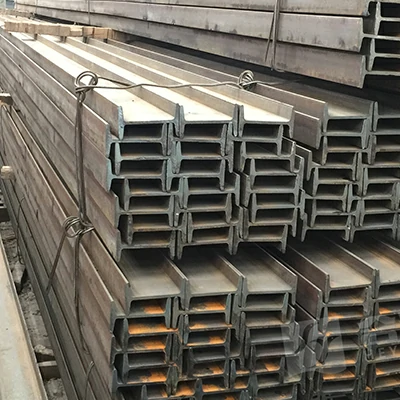Posted on March 14, 2024
How do i beam manufacturers contribute to structural integrity?
I-beam manufacturers contribute to structural integrity through several key factors:
- Material Selection: I-beam manufacturers carefully select high-quality materials, typically structural steel, with specific mechanical properties suited for structural applications. These materials are chosen for their strength, durability, and resistance to deformation, ensuring the integrity and stability of the structure.
- Quality Control: I-beam manufacturers implement stringent quality control measures throughout the manufacturing process to ensure the consistency and reliability of their products. This includes testing the raw materials, monitoring production processes, and inspecting finished beams for defects or inconsistencies.
- Precision Manufacturing: I-beam manufacturing involves precise shaping, cutting, and welding processes to create beams with accurate dimensions and tight tolerances. Manufacturers use advanced machinery and technology to achieve the desired shapes and profiles, ensuring that beams fit together seamlessly and contribute to the overall structural integrity of the building or infrastructure.
- Structural Design: I-beam manufacturers work closely with structural engineers and designers to develop beams that meet the specific requirements of each project. This includes determining the appropriate size, shape, i beam manufacturers and configuration of the beams to support the intended loads and withstand external forces such as gravity, wind, and seismic activity.
- Customization: I-beam manufacturers offer customization options to tailor beams to the unique needs and specifications of each project. This may include varying the dimensions, lengths, and profiles of the beams to accommodate architectural designs, span distances, and load requirements while maintaining structural integrity.
- Testing and Certification: I-beam manufacturers conduct rigorous testing and certification processes to validate the performance and structural integrity of their products. This may include mechanical testing, non-destructive testing, and certification by independent testing agencies to ensure compliance with industry standards and building codes.
- Corrosion Protection: I-beam manufacturers may apply protective coatings or treatments to their beams to enhance corrosion resistance and prolong their service life. This helps maintain the structural integrity of the beams in harsh environments and reduces the risk of premature deterioration or failure.
- Documentation and Traceability: I-beam manufacturers provide documentation and traceability information for their products, including material certifications, test reports, and quality control records. This ensures transparency and accountability in the manufacturing process and helps stakeholders verify the integrity and reliability of the beams used in their projects.
Overall, I-beam manufacturers play a critical role in ensuring the structural integrity of buildings, bridges, and infrastructure by producing high-quality beams that meet rigorous standards for strength, durability, precision, and performance. Their expertise, craftsmanship, and commitment to quality contribute to the safety and longevity of structures around the world.


